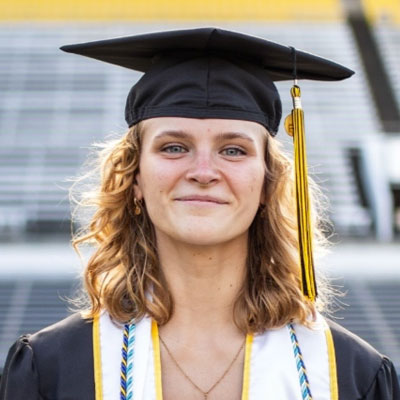Biology (BS) - Cellular/Molecular Biology

Application Deadlines
Location
Boone campus
Got credits?
Learn about transferring credits to App State
Work with the building blocks of life.
Are you fascinated by how the cell operates in living organisms? Cellular and molecular biology integrates principles from many disciplines, including chemistry, physics, genetics, biochemistry and physiology, for a more complete understanding of cell and molecular function.
App State’s Bachelor of Science (BS) in Biology - Cellular/Molecular Biology is your launchpad toward important careers in genetic, cell and physiological-based research, pharmaceutical research or bio-technology research.
App State’s Department of Biology has 23 state-of-the-art research facilities to further your development as a biologist.
All Biology students may apply to the biology honors program, which includes two research courses and an honors thesis.
A ‘Best College’ for 2025
The Princeton Review named App State among the best schools in the U.S. and Southeast for 2025.
Top 3 in innovation, undergraduate teaching
U.S. News & World Report has recognized App State as a top three school for innovation and the high quality of its undergraduate instruction for eight consecutive years.
A ‘Best College’ for value
App State’s quality, affordability and student outcomes place it among the nation’s 2024 best schools for value, according to Money.com
Innovative Academics
Courses
Minors
A minor is optional. Many students choose to minor in Chemistry because their concentration curriculum requires enough chemistry classes to complete a minor.
Transferring Credits
Learn about App State’s credit transfer process, and use our Transfer Equivalency Course Search tool to determine how your courses may transfer to App State.
General Education
With courses in history, natural and social sciences and humanities, App State’s General Education Program will reshape your outlook on learning and provide a foundational skill set that will prepare you for any career.
Accelerated Master’s
You can begin your graduate studies as an undergraduate and earn your master’s degree in as little as one year.
Careers and Mountaineers
Where can an App State degree take you? Anywhere you want to go! Our passionate and engaged alumni become leaders in their communities and chosen professions.
Careers
- Medical Doctor
- Dentist
- Veterinarian
- Microbiologist
- Biomedical Research Scientist
- Laboratory Technician
- Laboratory Scientist
- Pharmaceutical Salesperson
- Genetic Counselor
- Physician Assistant
- Chiropractor
- Osteopath
- Pharmacist
- Forensic Scientist
- Food scientist
- Biochemist
- Bioengineer
- Biomedical Engineer
- Bioinformatician
- Immunologist
- Pathologist
- Physician Assistant
- Optometrist
- Pharmacist
- Teacher/Educator/
Lecturer/Professor - Environmental toxicologist
- Research and Development Scientist
Some of these roles may require education beyond a bachelor’s degree.
Career information resource
App State’s Career Development Center
Services provided by the Career Development Center include resume reviews, career coaching, job and internship search assistance, and other tools for you to achieve life and professional success.
More to Explore at App State
Fund Your Education
Numerous scholarship and financial aid opportunities are available to help fund your App State education. Learn more about scholarships and financial aid.
International Experience
Work outside your cultural boundaries. Learn more.
Hands-on Research
Conduct cutting-edge research alongside faculty mentors. Learn more
State-of-the-art Facilities
Work in state-of-the-art research facilities outfitted with modern equipment. Learn more
Real-world Internships
Gain firsthand experience while earning your degree. Learn more
Find Your Community
Get inspired and get involved by joining App State clubs and organizations. Learn more
Honors College
Develop high-level creative thinking and research skills. Learn more and check out the departmental honors program.
Apply
Are you ready to become a Mountaineer? Take the next step, apply for admission to App State and elevate your future success.
Admissions questions? Contact us.
Connect
Visit Campus
Explore App State’s campuses in Boone and Hickory and learn more about what life is like as a Mountaineer.
Attend an information session to get to know App State’s people and programs.
Admissions Counselor
Have questions related to the App State admissions process? Our admissions counselors are here to help.





